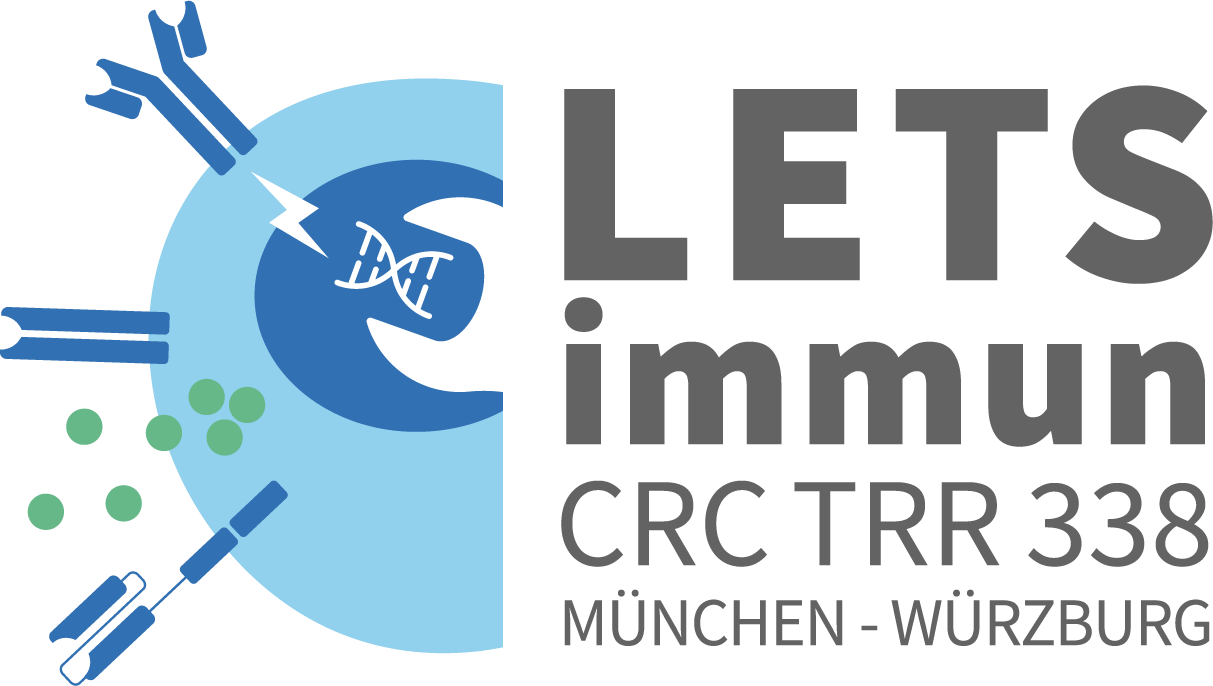
Prof. Dr. med. Michael Hudecek
Medizinische Klinik und Poliklinik II
Universitätsklinikum Würzburg
Oberdürrbacher Str. 6
97080 Würzburg
Phone: +49 931 201 71092,
Email: hudecek_m@ukw.de
University training and degree
04/2020 – present W2-Professorship ‘Cellular immunotherapy for malignant diseases’
06/2016 – 06/2019 Habilitation in ‘Experimental Internal Medicine’
07/2012 – present Clinical Fellow in Internal Medicine/Hematology, University of Würzburg
07/2007 – 06/2012 Postdoctoral Training and Education, Fred Hutchinson Cancer Research
Center, Seattle, WA, USA
01/2017 – 06/2007 Clinical Fellow in Internal Medicine/Hematology, University of Leipzig
09/2003 – 09/2007 Doctoral Student, Medical School, University of Leipzig
10/2000 – 11/2006 Studies in Medicine, Medical School, University of Leipzig
Advanced academic qualifications
04/2020 – present W2-Professorship ‘Cellular Immunotherapy of Malignant Diseases’ Julius-Maximilians-University Würzburg and Director, Translational CAR-T Research Program, Department of Internal Medicine II, University Hospital Würzburg
06/2016 – 06/2019 Habilitation in ‘Experimental Internal Medicine’, Julius-Maximilians-University Würzburg, Medizinische Fakultät
Degree: Habilitation and lecture qualification
09/2003 – 09/2007 Dissertation, Medical School, University of Leipzig
Degree: Doctor of Medicine
Postgraduate professional career
04/2020 – present W2-Professorship ‘Cellular Immunotherapy for malignant diseases’ & Leader, Translational CAR-T Research Program
07/2014 – present Max Eder Research Group Leader and Clinical Fellow, Department of Internal Medicine II, University of Würzburg
07/2012 – present Research Group Leader and Clinical Fellow, Department of Internal Medicine II, University of Würzburg
07/2007 – 06/2012 Postdoctoral Research Fellow, Fred Hutchinson Cancer Research Center, Seattle, WA, USA
10/2017 Artur-Pappenheim Award, German Society of Hematology and Medical Oncology (DGHO)
12/2015 m4-Award in Biotechnology ‘Personalized Medicine’, Free State of Bavaria
01/2015 – present Extraordinary Member, Bavarian Academy of Sciences
03/2014 – present Young Scholar (Member: ‘Junges Kolleg’), Bavarian Academy of Sciences
07/2014 – present Max Eder Program – Research Group Leader ‚CAR-T Cell Engineering’ German Cancer Aid (Deutsche Krebshilfe e. V.)
07/2010 – 06/2012 Fellowship – Career Development Program, Leukemia and Lymphoma Society (LLS)
12/2007 – 06/2010 Research Fellowship, German Research Foundation (Deutsche Forschungsgemeinschaft, DFG)
Professional and scholarly activities
06/2018 – present EHA (European Hematology Association) Member,
Working Group: Immune Therapies for Hematologic Disorders
03/2018 – present European society for Blood and Marrow Transplantation (EBMT) Member,
Cellular Therapy & Immunobiology Working Party
07/2017 – present Advances in Cell and Gene Therapy (Wiley) Member, Editorial Board
07/2007 – present Reviewer for Scientific Journals including Science Translational Medicine, Blood, Leukemia, Molecular Therapy, Gene Therapy
Selected memberships
03/2015 – 02/2020 Bavarian Academy of Sciences, Extraordinary Member
06/2014 – 02/2020 Bavarian Academy of Sciences, Young Scholar (Member: ‘Junges Kolleg’)
a) Articles published by outlets with scientific quality assurance, book publications and works accepted for publication, but not yet published
1. Gudipati V, Rydzek J, Doel-Perez I, Dos Reis Gonçalves V, Scharf L, Königsberger S, Lobner E, Kunert R, Einsele H, Stockinger H, Hudecek M*, Huppa J B* (*shared senior authorship). Inefficient CAR-proximal signaling blunts antigen sensitivity. Nat Immunol. 2020 Jul 6. doi: 10.1038/s41590-020-0719-0.
2. Querques I, Mades A, Zuliani C, Miskey C, Alb M, Grueso E, Machwirth M, Rausch T, Ivics Z, Hudecek M*, Barabas O * (*shared senior authorship). Designer Sleeping Beauty transposase improves control and fidelity of therapeutic gene insertion. Nat Biotech, 2019 Nov 4. doi: 10.1038/s41587-019-0291-z
3. Mestermann K, Rydzek J, Frenz S, Nerreter T, Mades A, Einsele H, Hudecek M. The tyrosine kinase inhibitor dasatinib acts as a pharmacologic on/off switch for CAR-T cells. Sci Transl Med. 2019 11(499): 1-11.
4. Jetani H, Garcia-Cadenas I, Nerreter T, Thomas S, Rydzek J, Briones J, Bönig H, Herr W, Sierra J, Einsele H, Hudecek M (2017). CAR-T cells targeting FLT3 have potent activity against FLT3-ITD+ AML, and act synergistically with the FLT3-inhibitor crenolanib. Leukemia 32: 1168-1179.
5. Gogishvili T, Danhof S, Prommersberger S, Rydzek J, Schreder M, Brede C, Einsele H, Hudecek M (2017). SLAMF7-CAR T-cells eliminate myeloma and confer selective fratricide of SLAMF7+ normal lymphocytes. Blood 130: 2838-2847.
6. Monjezi R, Miskey C, Gogishvili T, Schleef M, Schmeer M, Einsele H, Ivics Z, Hudecek M (2017). Enhanced CAR T-cell engineering using non-viral Sleeping Beauty transposition from minicircle vectors. Leukemia 31: 186-94.
7. Sommermeyer D*, Hudecek M*, Kosasih PL, Gogishvili T, Maloney DG, Turtle CJ, Riddell SR (2016). Chimeric antigen receptor-modified T cells derived from defined CD8+ and CD4+ subsets confer superior antitumor reactivity in vivo. Leukemia 30: 492-500.
8. Hudecek M*, Sommermeyer D*, Kosasih PL, Silva-Benedict A, Liu L, Rader C, Jensen MC, Riddell SR (2015). The non-signaling spacer domain of chimeric antigen receptors is decisive for in vivo antitumor activity. Cancer Immunol Res 3: 125-35. *equal contribution
9. Hudecek M, Lupo-Stanghellini MT, Kosasih PL, Sommermeyer D, Jensen MC, Rader C, Riddell SR (2013). Receptor affinity and extracellular domain modifications affect tumor recognition by ROR1-specific chimeric antigen receptor T cells. Clin Cancer Res 19: 3153-64.
10. Hudecek M, Schmitt TM, Baskar S, Lupo-Stanghellini MT, Nishida T, Yamamoto TN, Bleakley M, Turtle CJ, Chang WC, Greisman HA et al (2010) The B-cell tumor-associated antigen ROR1 can be targeted with T cells modified to express a ROR1-specific chimeric antigen receptor. Blood 116: 4532-41.
*equal contribution.
